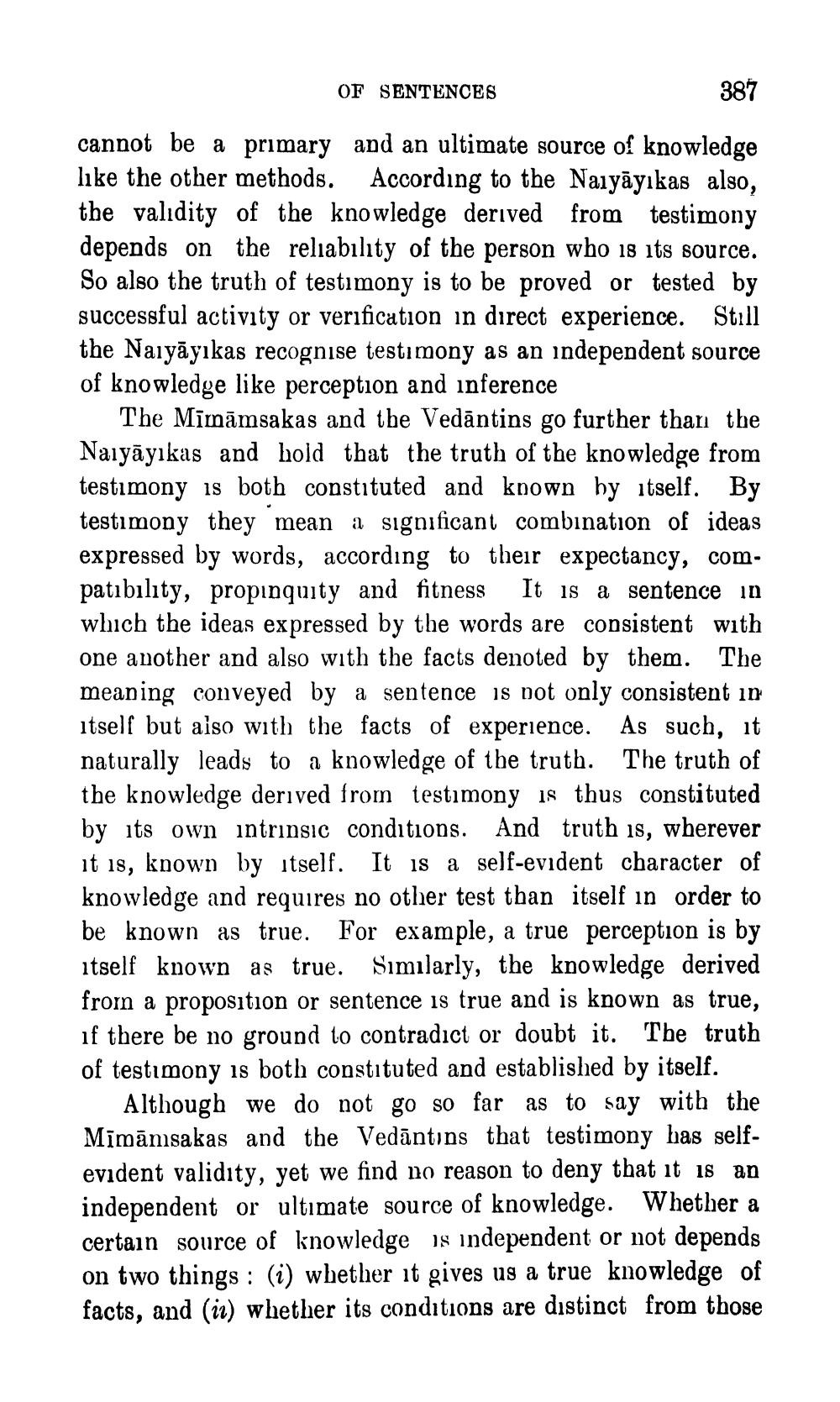________________
OF SENTENCES
387
cannot be a primary and an ultimate source of knowledge like the other methods. According to the Naiyayikas also, the validity of the knowledge derived from testimony depends on the reliability of the person who is its source. So also the truth of testimony is to be proved or tested by successful activity or verification in direct experience. Still the Naiyayikas recognise testimony as an independent source of knowledge like perception and inference
The Mīmāmsakas and the Vedantins go further than the Naiyayikas and hold that the truth of the knowledge from testimony is both constituted and known by itself. By testimony they mean a significant combination of ideas expressed by words, according to their expectancy, compatibility, propinquity and fitness It is a sentence in which the ideas expressed by the words are consistent with one another and also with the facts denoted by them. The meaning conveyed by a sentence is not only consistent in itself but also with the facts of experience. As such, it naturally leads to a knowledge of the truth. The truth of the knowledge derived from testimony is thus constituted by its own intrinsic conditions. And truth 18, wherever it is, known by itself. It is a self-evident character of knowledge and requires no other test than itself in order to be known as true. For example, a true perception is by itself known as true. Similarly, the knowledge derived from a proposition or sentence is true and is known as true, if there be no ground to contradict or doubt it. The truth of testimony is both constituted and established by itself.
Although we do not go so far as to say with the Mīmāmsakas and the Vedantins that testimony has selfevident validity, yet we find no reason to deny that it is an independent or ultimate source of knowledge. Whether a certain source of knowledge is independent or not depends on two things: (i) whether it gives us a true knowledge of facts, and (i) whether its conditions are distinct from those




